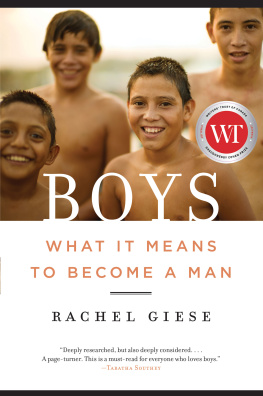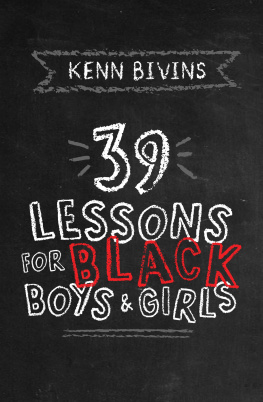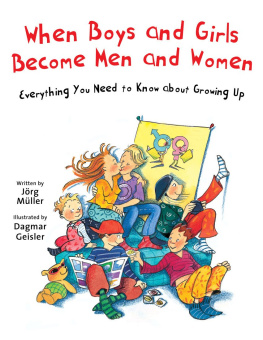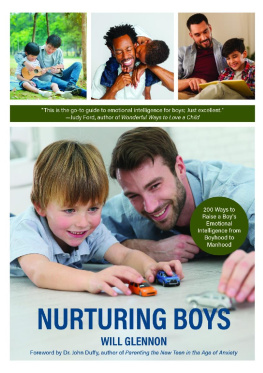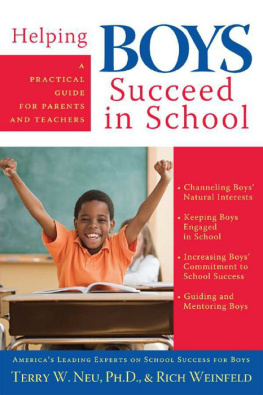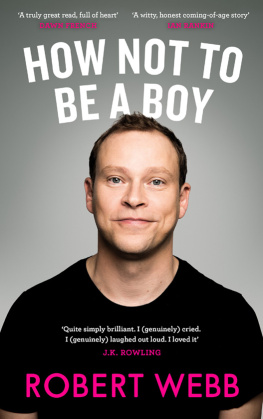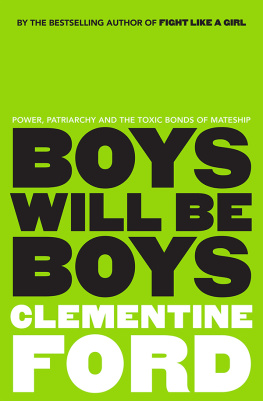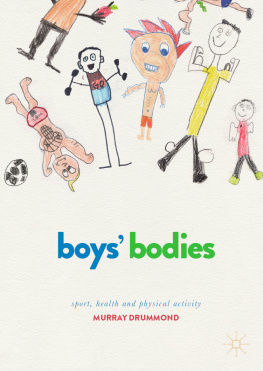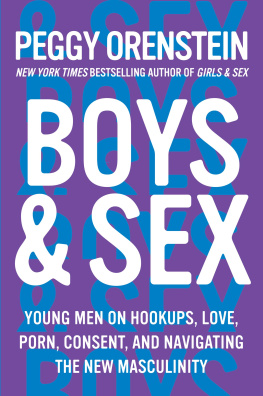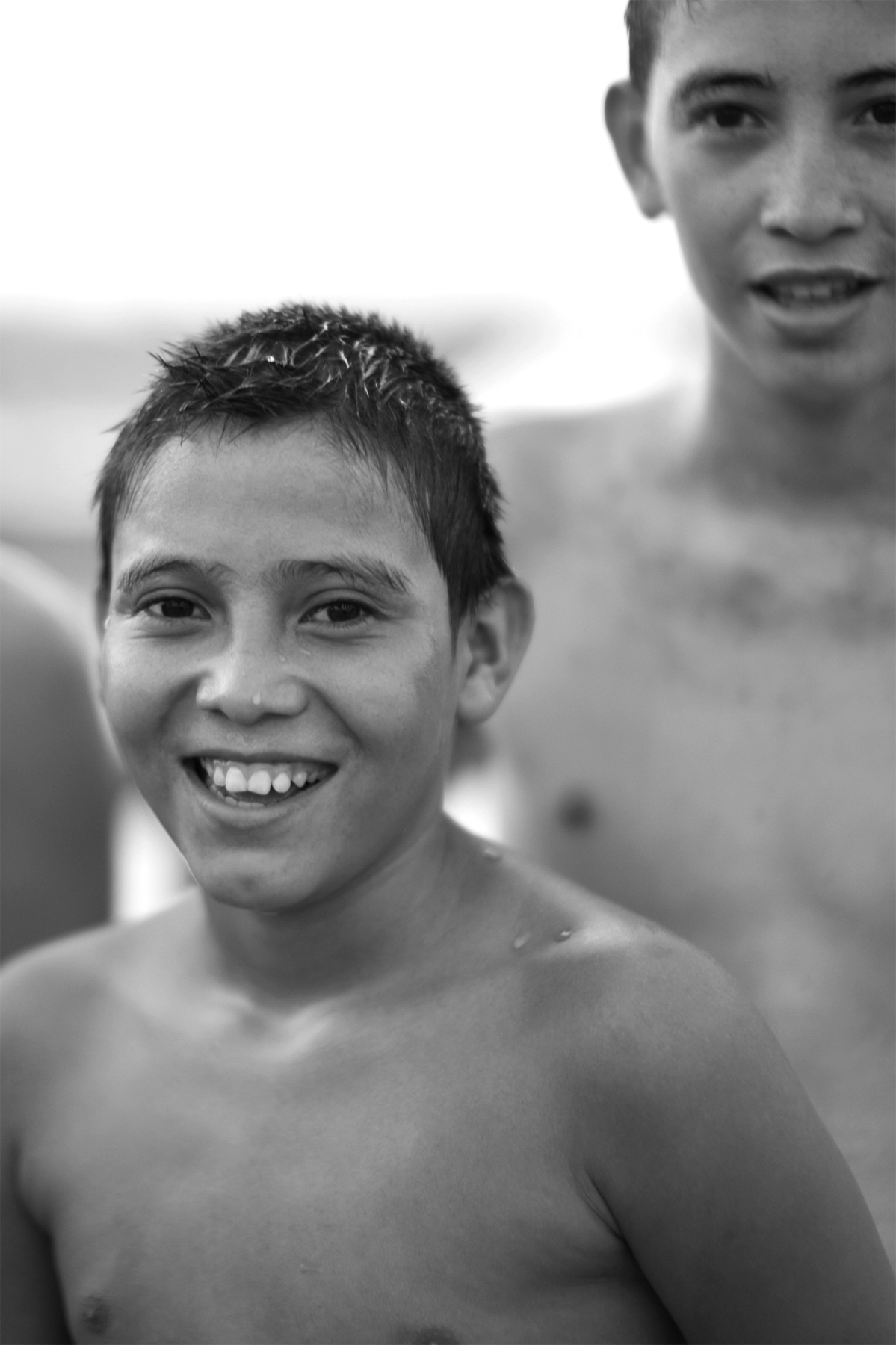On a late spring day a few years back, around the time of my sons tenth birthday, he and I were running errands in our neighbourhood when he spotted a friend. The boys shouted each others names in delight, and as we passed the kid on the sidewalk, he and my son paused and leaned into one another, clasping right hands and pressing right shoulders together while patting each others back. Then, seamlessly, they released their grip, and each continued on his way.
Id seen men greet each other like thisor some other hand-slapping, fist-bumping, dap-giving variationthousands of times. Theres even a famous GIF of US president Barack Obama meeting the mens Olympic basketball team in 2012 : After offering a sober handshake to an older white staff member, he turns with a high-beam smile to star player Kevin Durant. Palms smack, shoulders bump, backs are slapped. The greeting has its roots in African American culturein his 2014 photography project Five on the Black Hand Side, Chicago artist LaMont Hamilton traces its origins to the late 1960 s during the Vietnam War, when black GIs gave dap as a symbol of unity, brotherhood and survival. But like so many black inventions, the elaborate handshake has been co-opted and gone mainstream, especially among younger, athletic guys of all races. And in these circles its less often a signifier of political solidarity than of masculine cool, and a socially acceptable way for men to express and share affection. Its not a hug. Its a bro-hug.
Witnessing the handshake between my son and his friend was a small marvel, one of those sweet-and-sharp parental moments of realization that your baby has become worldly and unfamiliar. It was also a curiosity. I had no idea who hed mimicked, or how often hed tried out this gesture to make it look so graceful and confident, as though he had been born doing it.
My sons childhood and early adolescence, and his growing mastery of the rituals of manhood, are more an amazement to me than they might be for other parents. My wife and I adopted our son when he was one, so we have no genetic connection for comparison, no he has your musical talent, no he got his dexterity from me; nor did either one of us have a boyhood of our own. And our son, with his swagger, his love of sports, video games and skateboards, his inability to sit still, and his gross-out humour, ticks many of the boxes of the traditional boy profile. A family member once joked about the twist in fate that placed such a stereotypical boy in a home with two women. But I dont see it that way. Our sons rough-and-tumble spiritedness didnt appear to me as more male than female (I know lots of rowdy girls), nor did I think his ample affectionateness and tenderness made him an exception to his sex (I know many gentle men). Our son has had plenty of male role models: uncles and grandfathers, family friends, teachers, mentors and coaches. When he was around eight, I asked him if he ever wished he had a dad, or felt that he was missing out by not having one, and he paused for a moment to consider. Theres one thing, he said. I think if I had a dad, Id get to go to McDonalds more often. Not wanting to let this go unchallenged, I told him we knew a lot of dads who didnt go to McDonalds, like a neighbour who was vegetarian and a foodie friend who only bought meat from the organic butcher. My son shrugged, already bored and regretting this conversation. Okay, fine, he said. All I know is that you two lesbians never take me to McDonalds.
Can I be honest? Aside from making a family joke out of depriving our son of Big Macs when he was younger, my wife and I didnt dwell on what it meant to be two women raising a boy. We figured he could call on his uncles when it was time to learn to shave. But pretty much everything else a kid needs to be taught, qualities like decency, resilience, empathy, honesty and tenacity, are genderless. A greater consideration for us was race. Were both white, and our son is Anishinaabe. When it came to our sons sense of self, we were far more consumed with ensuring he was connected to his Indigenous roots and culture than we were with worrying about whether hed know how to tie a tie or throw a baseball. (My wife taught him to do both.)
Besides, we have a certain slant on the issue. Just as we had no preference for adopting a boy or a girl, we didnt anticipate that wed raise a boy or a girl all that differently. Within our own circle of friends and in the larger LGBTQ community (the initials stand for lesbian, gay, bisexual, transgender, queer and two-spirit), gender isnt a garrison but an amusement park, where rules about masculinity and femininity are questioned, exaggerated and turned upside down. From the time he was a toddler, our son has been around all manner of men who express all manner of manliness, from macho to fey, including a gay uncle who embraces bothhes a former high school football player whos knock-out gorgeous dressed in drag. Masculinity isnt solely a male domain either. There are butch women in my sons life, most notably my wife, who gets her hair cut at a barbershop, has tattoos snaking down both arms and even now, in her forties, is regularly mistaken for a teenage boy. When our son was young, we aimed to raise him without a strict gender agenda. Like good feminists, we bought him a toy cooking set as well as Thomas the Tank Engine trains. How much this would inoculate him against gender stereotypes, we didnt know. But at the time, his adulthood felt so distant that it was impossible to imagine what our little boy would be like as a man. Until, one day, it wasnt.
The glimpse I had of my son giving dap to his friend made me stop short. When had he become such a guy? I wondered. And now that he was older, how would his transition from boy to man alter him? I began to more seriously consider the ambient noise of gender rules and masculinity, the lessons both implicit and overt that my son was absorbing about male culture and manhood. What did he think it meant to be man? Was manliness for him simply about endearing and benign rituals like complicated handshakes and a fondness for guy stuff like basketball and Call of Duty? Or was he also picking up on the more troubled and troubling manifestations of masculinity, such as aggression and emotional detachment? What did he think of being a man in relation to women? My son is now in his early teens, and his coming of age coincides with a moment when masculinity is under examination: terms such as male privilege, patriarchy, misogyny and toxic masculinity have made their way from university gender studies departments into the mainstream, and criticisms about manspreading and mansplaining are aired on social media.
Its also a moment when masculinity is felt by some as being under dire threat, as evidenced by the growing allure of online forums and websites populated by mens rights activists, so-called pickup artists (PUAs), outraged male gamers and other guys expressing varying degrees of confusion and fury about the changing social order. To many of them, feminism and the achievements of women have emasculated men and upended natural gender roles. Aggrieved entitlement is a phrase used by Michael S. Kimmel, a sociologist at Stony Brook University in New York and the author of Guyland: The Perilous World Where Boys Become Men and Angry White Men: American Masculinity at the End of an Era, to describe the general mood of this subset of predominantly white men who feel they have been usurped by others who appear to be progressing: women, immigrants and people of colour.

